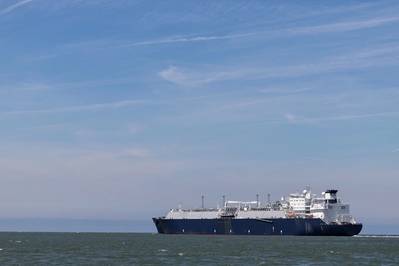Baltic Exchange Adds LNG Powered Seaborne Gas Assessments
A new set of independent indices for the liquified natural gas (LNG) seaborne trade went live this week (2 March), based on the carriers burning LNG, rather than marine fuel oil or marine gas oil, as their primary fuel.
Published twice weekly, the new indices have been given the acronym (BLNGg) and will be published alongside the current LNG indices which are based on LNG carriers burning Very Low Sulphur Fuel Oil (VLSFO). Historical data for the new indices will be available dating back to 1 January 2020.
The new standard Baltic vessel has the following speed and consumption specification when burning LNG as a fuel:
- 17 knots on 210 cbm LNG/day laden
- 16 knots on 190 cbm LNG/day ballast
- 0.1% boil off
- Port consumption 42 cbm LNG/day idle
- Port consumption 85 cbm LNG/day working
US dollar per day assessments are available on the following routes:
- BLNG1g Australia to Japan RV
- BLNG2g US Gulf to Continent RV
- BLNG3g US Gulf to Japan RV
CME Group plans to launch three new futures contracts based on the new Baltic Exchange indices on 22 March, 2021, pending regulatory review.
“As LNG markets continue to evolve globally, demand for new tools to manage the risk around its transportation is also growing rapidly,” said Peter Keavey, Global Head of Energy at CME Group. “The introduction of contracts based on the usage of LNG as bunker fuel among global shipping routes is the next step in the evolution of freight and provides another market-based solution to help our customers to manage their global gas risk.”
Since the introduction of the 2020 Global Sulphur Cap by the International Maritime Organization (IMO), the majority of LNG carriers have switched to LNG boil-off gas rather than burn low-sulphur fuel oil, marine gas oil or install emissions abatement technology. The boil-off process allows the naturally evaporating LNG cargo to be sent to the engine room and burned by the main boilers as fuel.

















